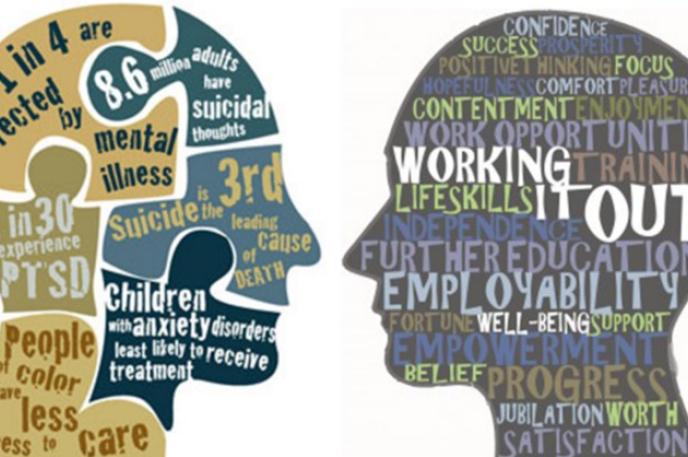
Mental Health and the Black Community
November 9, 2020
This blog was written as part of Charlotte Mecklenburg Library's Black Lives Matter program initiative. Learn more about the program and corresponding events here.
In the wake of current events, it’s important to take steps every day to better mental health and maintain overall wellness. Mental health is especially important as the holiday season approaches, especially during a time when the U.S. has faced an overwhelming force of injustices.
For this reason, I sat with Nicole Starks, a licensed mental health therapist in Charlotte, to discuss how to begin to dismantle the stigma surrounding mental health in the Black community. She shared her expertise on implementing self-care in our daily lives as there are so many things that the Black community must tackle daily. Ms. Starks knew from a young age that she wanted to help people. In college, she obtained an undergraduate degree in psychology and received a graduate degree in mental health counseling. Ms. Starks has spent most of her career working with children in underserved communities. Currently, she works as a mental health therapist at an adolescent residential psychiatric facility.
The first topic we addressed was the stigma surrounding mental health in the Black community. Ms. Starks grew up in a small southern town where it was considered taboo to seek mental health help. She reflected on how embarrassing it was growing up to admit she needed help managing her mental health. She outgrew that viewpoint and began to bust the myths surrounding mental health in the Black community.
“We can’t operate at our fullest capacity without maintaining our mental health and wellness,” Ms. Starks explains. She adds, "Our thoughts and feelings affect [our] everyday perspective, and there is nothing wrong with seeking help.” Ms. Starks adds, “If our mental health is diminished in any way, we must seek help to shift our mindset. And honestly, by seeking assistance, we are making the best decision for our overall wellness.”
Tending to your mental health every day as a Black person is a necessity. Ms. Starks explains that “our community has suffered and been through trauma since our ancestors arrived in this country. We are still dealing with the effects of transgenerational trauma today and taking care of your mental health is a part of transforming the mindset away from trauma.”
The year 2020 has been heavy and we must find ways to deal. Ms. Starks shares tips that we can all use to maintain overall mental wellness. These tips are especially vital as we approach the holiday season:
- Don’t be in denial about needing help – be open to seeking and receiving it
- Understand that seeking assistance doesn’t make you weak or indicate something is wrong with you
- Find a mental health therapist today
Seasonal depression (or holiday blues) is a real thing. So, as we approach these colder months, Ms. Starks recommends we lean on our community. Be vulnerable when you need to and find creative ways to stay connected to those that we love. Lastly, she shared that we should stay away from social media as much as possible and use our free time to invest in ourselves.
A significant way to begin to invest in ourselves is to implement self-care in our daily lives. Ms. Starks says, “Self-care is vital to how we function, and it allows us to be in tune with ourselves. By being in tune with ourselves, we can recognize and address our daily wellness needs. It (self-care) doesn’t have to be extravagant and can be as simple as taking a nap or planning a trip. We must find time to figure out what makes us feel at peace and recharge. Self-care allows us to take a moment to get reconnected with ourselves and maintain the motivation needed to continue each day. Lastly, that discovering a new hobby or merely treating yourself defines the best self-care for you.”
We concluded our conversation by discussing how we can support the people we love who may struggle with their mental health. She reminded me “It is ok for us not to have the answers and ask what is needed. We should listen without judgment and be a shoulder. Avoid comparing situations and never minimize suffering. We must understand that we all have different mental capacities. To show support, we should validate others’ experiences and feelings, and we all must recognize that this is all a normal part of life.”
The best thing we can do for ourselves is to take a step every day to maintain our mental health. Ms. Starks shared some great tips we all could implement in our daily lives. To close, she left me with a game-changing tip: We must remember that we cannot help others if we are unwilling to help ourselves.
Interviewee: Nicole Starks, MA, LCMHCA
Official Job Title: Mental Health Therapist
This blog was written by Cearra Harris at West Boulevard Library.
